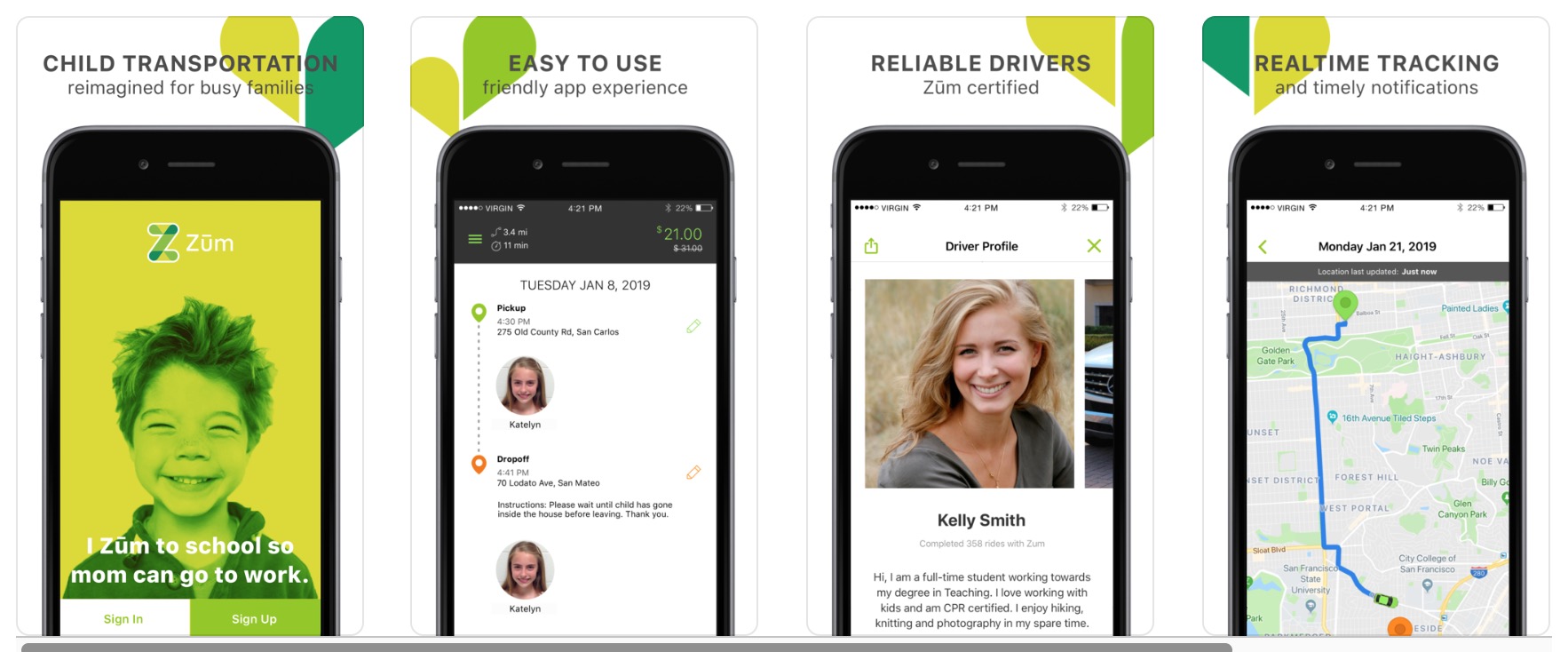
Zūm, a Redwood City, California-based kids ridesharing service, recently made a few big announcements. The company announced it secured additional funding from new investor Citi Ventures — which will help the company double its national footprint by 2020.
Plus the investment from Citi Ventures is going to help Zūm accelerate growth initiatives and pursue new strategic partnerships. The investment adds to the $40 million Series C round that was led by BMW i Ventures and supported by other new investors NGP Capital, Volvo Cars Tech Fund, Clearvision, Draper Nexus and existing investors Sequoia Capital, and Spark Capital.
What does Zūm do? It provides more flexibility and efficiency in student transportation by supplementing the yellow school bus. This is done with a fleet of cars and vans that handle daily student commuting, extracurricular trips, and after-school activities.
Over the last 18 months, Zūm has saved California schools $15 million with its network of highly vetted drivers and advanced scheduling for safely transport children to school and back. Zūm also signed up more than 150 new school districts in 2018.
“Safe, reliable transportation for school-aged children is a major expense and pain point for both schools and parents, and Zūm is committed to providing an innovative and dependable solution,” said Citi Ventures managing director and co-head of venture investing Ramneek Gupta. ” Zūm is re-inventing the $40 billion per year school transportation market and we’re proud to support their expansion.”
Dallas Expansion
Zūm also announced it is entering the Dallas market as its first step in national expansion. Since there are 2,400 schools and a student population of about 1.4 million, Dallas transportation leaders have been feeling a crunch. And the city has been shutting down school buses for nine districts due to the lack of funds.
The average student in Dallas spends between 60 to 90 minutes on a one-way ride to school. These long commutes are due to bus and driver shortages. And this is especially disruptive for the 110,000 students attending special education programs.
These students often require extended commutes for schools that meet their needs. Many school buses are just shuttling only one to two of these children at a time — which has been leading to empty seats and wasted dollars.
Founded by CEO Ritu Narayan and COO Vivek Garg, Zūm fixes this problem by providing more efficient and cost-effective transportation by filling the current gaps in student transportation and providing new levels of service for students, families, and school leaders. Zūm has already hired 100 new drivers (Zūmers) in the greater Dallas area and is focused on recruiting driver-childcare providers like parents, nannies, teachers, and nurses.
“Zūm’s goal is to create a ripple effect of changing lives for the better. How a student starts their day impacts their ability to learn. When a child arrives at school with comfort and ease, and their commute is shorter, they can more easily focus in class, and ultimately can learn more. Our service especially helps working families navigate the daily challenges of juggling student and parent commutes,” explained Zūm CEO and founder Ritu Narayan. “We’re proud to be bringing the service to Dallas school districts, and plan to expand even further over the next year and beyond.”

Photo: Zūm CEO and co-founder Ritu Narayan via LinkedIn
According to Forbes, Narayan was driven to launch Zūm for multiple reasons. One of the biggest reasons was to let accomplished executives who happen to be mothers maintain their careers. Before launching Zūm, Narayan witnessed firsthand what it was like to coordinate transportation.
Narayan was raised in India and received a master’s degree from Stanford before working in a management position at eBay. Often times, she found herself preoccupied with the needs of her children while at work.
One of Zūm’s early customers was a Bay Area mother where flex time did not help much. Many of her co-workers did not notice that she came into work at 6:30 AM, but they saw her leaving by 3:30 PM. When Zūm started handling the afternoon driving, it allowed her to be present through standard end-of-day and attend more meetings — which led to a big promotion.


